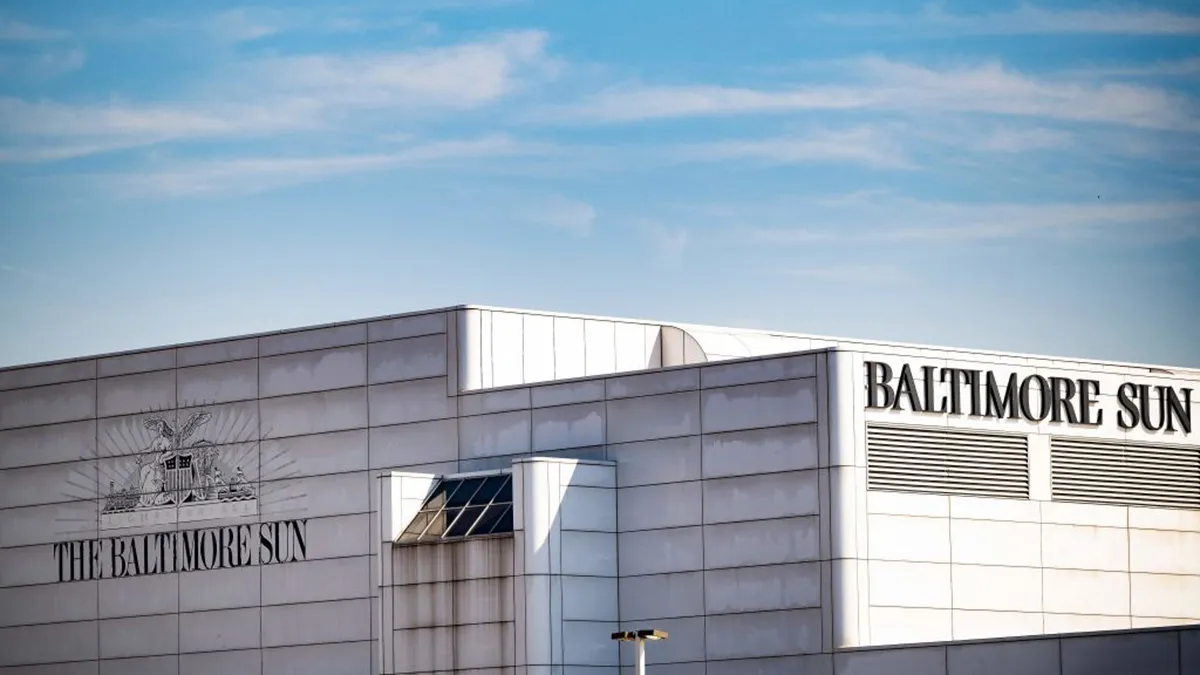Politics
Liberal Newspaper’s Staff Melt Down After Conservative Buys The Outlet

The carving up of regional newspapers by corporate buyers has become a well-treaded narrative of the legacy news industry. Along the way, journalists and advocates have called for greater control by local owners. Now that theory will be tested as a new conservative owner clashes with the liberal reporting staff at the Baltimore Sun.
A deep dive into the drama by the Washington Post details the newsroom consternations that abounded after the paper was purchased by David D. Smith, a television news executive and lifelong resident of the Baltimore area. Smith, who serves as executive chairman of the Sinclair Broadcast Group, controls about 200 local TV stations and has prioritized the injection of conservative viewpoints to boost audiences and improve ratings. His plans to do the same at the Sun prompted a tense first meeting between both sides.
“Full disclosure, I haven’t read the newspaper in 40 years,” Smith started off. “Literally have not read the newspaper. … I read the paper maybe four times since I started working on trying to buy this place,” according to an audio recording obtained by the Post.
The two-and-a-half-hour meeting led to some testy exchanges.
“We’re a Pulitzer Prize-winning newsroom,” retorted one journalist, referencing the paper’s 2020 investigation into fraud within the mayor’s office.
“Just look at the data,” Smith shot back, pointing out that the Sun’s declining circulation is no different than that affecting hundreds of local papers across the country.
The Sun’s liberal newsroom is now trapped between a rock and a hard place. Alden Global Capital, the paper’s previous owner, focused its venture capital model on slashing jobs and streamlining local reporting almost into nonexistence while attempting to squeeze minimal profits out of a large portfolio of news outlets. Smith’s acquisition of the Sun, however, was not viewed by staff as a return to the halcyon days of family newspaper dynasties and local ownership.
“Your job is to manufacture content,” he said, according to the audio recording, “a product that people want.”
Smith declined an interview with the Post but said in a statement that he “looks forward to having the Baltimore Sun cover important, impactful stories to make a difference in the community” and that he “believes one of the primary purposes of the newspaper is to serve the public interest.”
The executive has drawn frequent criticism for using his hundreds of TV stations to tout conservative talking points, including a heavy rotation of “fake news” statements by anchors in 2018.
Smith insisted in his meeting with the Sun’s staff that he has no political ideology.
“I don’t trust any politicians under any circumstances,” he said. “I don’t trust government under any circumstance.”
That didn’t stop the Baltimore Sun Guild, the newsroom union, from issuing a statement that they are concerned with Smith’s focus “on clicks rather than journalistic value,” which “concerned many of our members.”
“We don’t know how to reason with him,” one Sun staffer told The Post after the meeting, speaking on the condition of anonymity to preserve working relationships. “Because he is so uninformed about print media standards and journalism ethics as a whole.”
During Alden’s ownership of the Sun, its printing press was shuttered and more than 100 workers were laid off, though those cuts did not make their way into the newsroom. Without additional cost-cutting, Alden may have found it beneficial to offload the Sun, said Rick Edmonds, a media analyst for the Poynter Institute.
Usually, Alden “can take the paper down in quality, and people who still really want to have a newspaper won’t like it — but they can still make some money and have some customers.” However, “all those numbers get worse when you have an ambitious competitor.”
Smith’s acquisition will be studied as one of the more fascinating examples of local newspaper ownership in the 21st century.
“Generally, research has shown that local ownership is good for regional news organizations,” ushering in greater investment and renewed local coverage, said Tim Franklin, a former Sun executive editor and now a senior associate dean at the Medill School of Journalism at Northwestern University. “The concern here is whether he will use the Sun to advance his ideological agenda.”

